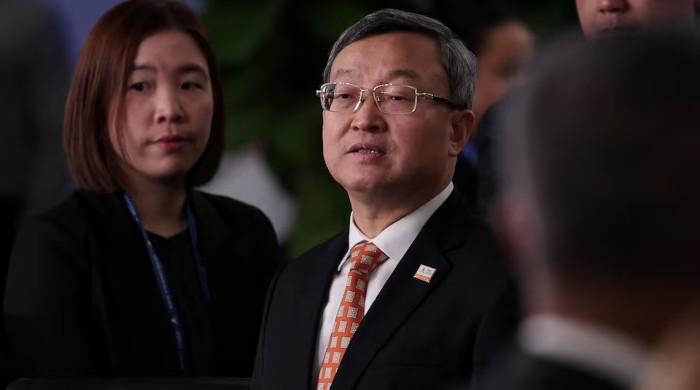China has unexpectedly appointed Li Chenggang, currently its envoy to the World Trade Organisation (WTO), as a new trade negotiator. This move comes at a crucial time as tensions escalate in the tariff war with the United States. Li Chenggang, aged 58, previously served as an assistant commerce minister during Donald Trump’s first term as US President. He succeeds Wang Shouwen, aged 59, in this key role, the change was announced in a statement by the human resources and social security ministry.
As of Wednesday, Wang Shouwen’s name was no longer listed among the commerce ministry’s leadership team on its website, leaving his next position unclear. Wang had held the No 2 role at the commerce ministry since 2022. The ministry has not yet provided an explanation for this change, and a request for comment went unanswered.
According to a source within Beijing’s foreign business community, Wang was known as a formidable negotiator who had engaged in clashes with US officials in past discussions. The source described him as a “bulldog” known for his intensity.
This leadership transition occurs as Beijing adopts a firm stance in its intensifying trade conflict with Washington, which began with Trump’s imposition of significant tariffs on Chinese imports.
The timing of this abrupt change coincides with President Xi Jinping’s ongoing tour of Southeast Asia, aimed at strengthening economic and trade relationships with neighboring countries amidst the ongoing tensions with the US. Commerce Minister Wang Wentao has been accompanying Xi on his visits to Vietnam, Malaysia, and Cambodia this week.
Alfredo Montufar-Helu, a senior advisor at the Conference Board’s China Center, described the change as “very abrupt and potentially disruptive,” particularly given the rapid escalation of trade tensions and Wang’s extensive experience negotiating with the US since Trump’s first administration.
Montufar-Helu speculated that the change may reflect a desire among China’s top leaders to find someone who can break the current impasse and initiate negotiations, given the continued escalation of tensions.
In contrast to other nations that have sought bilateral agreements with Washington in response to Trump’s tariff plans, Beijing has opted to increase levies on US goods and has refrained from pursuing talks, asserting that discussions must be based on mutual respect and equality.
Washington stated that Trump is open to a trade agreement with China but emphasized that Beijing must take the initial steps, suggesting that China needs access to “our money.”
At a WTO meeting in Geneva this February, Li criticized the US for imposing arbitrary tariffs on trading partners, including China, cautioning that such actions have triggered “tariff shocks” globally.
Li stated that the US’s unilateral approach blatantly violates WTO rules, exacerbates economic uncertainty, disrupts global trade, and may even undermine the rules-based multilateral trading system. He affirmed China’s firm opposition and urged the United States to cease its wrongful practices.
Li has held various key positions within the commerce ministry, including roles in departments overseeing treaties and law and fair trade. He possesses an academic background from Peking University and Germany’s Hamburg University.
Alfred Wu, an associate professor at the National University of Singapore, noted that Li’s CV indicates he is a typical Chinese technocrat with substantial experience in trade issues, both at the commerce ministry and the WTO.
Wu added that while the move appears to be a routine promotion, it occurs during a sensitive period due to US-China tensions.
On March 31, Li participated in a Chinese private entrepreneurs’ forum as a “leader” of the commerce ministry, according to state media, providing an early indication of his impending move to a new role.



Comments (0)
No comments yet. Be the first to comment!
Leave a Comment